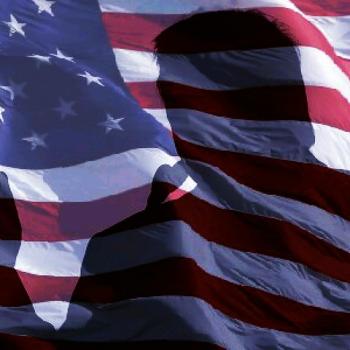 According to a recent Pew Forum poll, one in five American adults say they do not have a religious affiliation. This is up from 15% of those polled five years ago and reflects a strong trend in religious affiliation in the United States.
According to a recent Pew Forum poll, one in five American adults say they do not have a religious affiliation. This is up from 15% of those polled five years ago and reflects a strong trend in religious affiliation in the United States.
I think this trend is at least in part a result of the increasingly aggressive evangelism by secularists and atheists in our society.
This secularist/atheist evangelism is probably most effective in the enclosed environments of our college campuses.
Late adolescents who yearn to hear their professors say they are brilliant are easy marks for lecture hall propaganda. The atheist pose becomes even more wish-fulfilling when the other students adopt it, giving them the chance to use it to fit in. It also fits neatly with the late adolescent’s need to find to stage a cost-free rebellion. In short, going atheist gives them the cachet of brilliance they want, the acceptance from their peers they need and the pose of being a rebel in a trendy and safe way. It’s a social win-win-win for them.
Evidently, insulting Christians and verbally harassing them and then bragging about it to one another is part of the social culture of their newfound unbelief. I read a lot of blogs, including a few atheist blogs. One thing that impresses me is the derivative quality of the thinking on the atheist blogs.
They quote from very popular books as if the thought was their own and advance arguments that are at least a hundred years old and then high-five one another for their cleverness. There is such a lot of bragging on these blogs, including obvious lying, about verbal jousts they claim to have had with “faith heads”
This might be funny. It is funny. But when this adolescent boorishness is multiplied by thousands of individuals, all trying to outdo one another in insulting and verbally assaulting a group of people, it becomes verbal harassment, hate speech and the fuel that can run the engine of legal and social discrimination.
Verbal attacks on people of faith are ubiquitous in our society. You see them very time you turn on the tv or listen to the radio. I’ve had to delete and ban to keep this blog from being overrun by them.
 It doesn’t surprise me that the number of people who do not chose to identify themselves as part of any particular church is climbing at a time when verbal attacks on people of faith and faith itself are so rampant in our society. People are running away from religious affiliation to keep from being labeled and harassed. They are avoiding any consideration of faith so that they can appear cool and trendy.
It doesn’t surprise me that the number of people who do not chose to identify themselves as part of any particular church is climbing at a time when verbal attacks on people of faith and faith itself are so rampant in our society. People are running away from religious affiliation to keep from being labeled and harassed. They are avoiding any consideration of faith so that they can appear cool and trendy.
I’ve been aware of this trend for some time. My work as an elected official has made me the target of the verbal harassment and hate speech unbelievers feel free to dump on people of faith. I not only saw the harbingers of what was coming, I lived through some of them.
I knew there was a constant agitation through the courts to limit the freedom of speech and expression of religious people, as well as remove any vestiges of Christianity from our public monuments and art. But the HHS Mandate took even me by surprise. I did not expect legal discrimination against people of faith to move so far, so fast.
These things are why I began Public Catholic. Christians must take their blinders off and allow themselves to see this. We need to stop running away from these bullies and begin standing up for Jesus.
The Pew Report underlines that we also need to do a much better job of talking about the wonderful things that Christianity has given and continues to give civilization. The attacks on Christianity that I’ve seen and read are based on biased, bogus scholarship that is basically propaganda used to justify hate speech. All we have to do to counter that is stop letting them badger us into silence and begin telling the truth.
As Bob Dylan said, the times, they are achangin’. It’s up to us to decide what part we’ll play in shaping those changes.
The Pew Forum article describing their report says in part:
The number of Americans who do not identify with any religion continues to grow at a rapid pace. One-fifth of the U.S. public – and a third of adults under 30 – are religiously unaffiliated today, the highest percentages ever in Pew Research Center polling.
In the last five years alone, the unaffiliated have increased from just over 15% to just under 20% of all U.S. adults. Their ranks now include more than 13 million self-described atheists and agnostics (nearly 6% of the U.S. public), as well as nearly 33 million people who say they have no particular religious affiliation (14%).3
This large and growing group of Americans is less religious than the public at large on many conventional measures, including frequency of attendance at religious services and the degree of importance they attach to religion in their lives.
However, a new survey by the Pew Research Center’s Forum on Religion & Public Life, conducted jointly with the PBS television program Religion & Ethics NewsWeekly, finds that many of the country’s 46 million unaffiliated adults are religious or spiritual in some way. Two-thirds of them say they believe in God (68%). More than half say they often feel a deep connection with nature and the earth (58%), while more than a third classify themselves as “spiritual” but not “religious” (37%), and one-in-five (21%) say they pray every day. In addition, most religiously unaffiliated Americans think that churches and other religious institutions benefit society by strengthening community bonds and aiding the poor.
With few exceptions, though, the unaffiliated say they are not looking for a religion that would be right for them. Overwhelmingly, they think that religious organizations are too concerned with money and power, too focused on rules and too involved in politics.
The growth in the number of religiously unaffiliated Americans – sometimes called the rise of the “nones” – is largely driven by generational replacement, the gradual supplanting of older generations by newer ones.4 A third of adults under 30 have no religious affiliation (32%), compared with just one-in-ten who are 65 and older (9%). And young adults today are much more likely to be unaffiliated than previous generations were at a similar stage in their lives.
These generational differences are consistent with other signs of a gradual softening of religious commitment among some (though by no means all) Americans in recent decades. Pew Research Center surveys conducted over the last 10 years, for example, find modest growth in the number of people who say they seldom or never attend religious services, as well as a declining number who say they never doubt the existence of God. (Read more here.)















